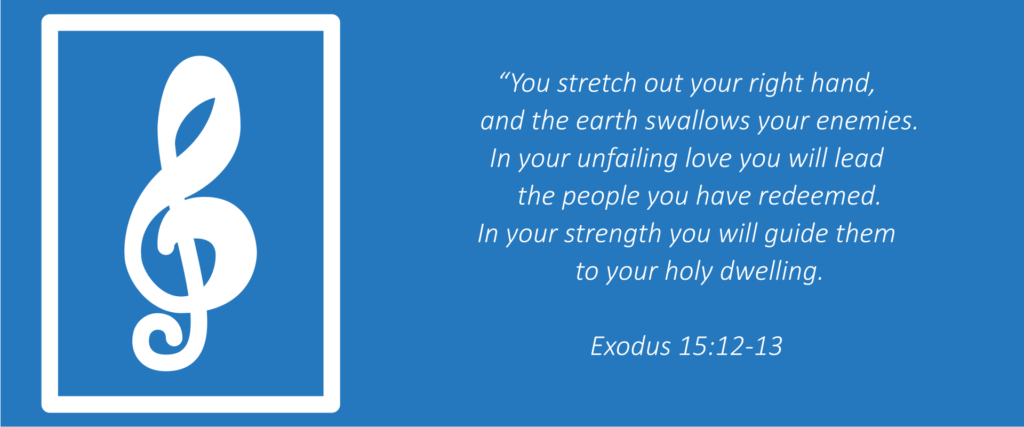Chapter fifteen
Seven Angels With Seven Plagues
15 I saw in heaven another great and marvelous sign: seven angels with the seven last plagues—last, because with them God’s wrath is completed. 2 And I saw what looked like a sea of glass glowing with fire and, standing beside the sea, those who had been victorious over the beast and its image and over the . They held harps given them by God 3 and sang the song of God’s servant Moses and of the Lamb:
“Great and marvelous are your deeds,
Lord God Almighty.
Just and true are your ways,
King of the nations.
4 Who will not fear you, Lord,
and bring glory to your name?
For you alone are holy.
All nations will come
and worship before you,
for your righteous acts have been revealed.”
Explore: Song of God’s Servant Moses and of the Lamb

There are many allusions to the Exodus story in Revelation, and certainly here with the seven bowls of seven plagues.
We are told that God’s people – those who are victorious over the beast – are singing the Song of Moses and of the Lamb. This is connecting the two great salvation stories of the Bible together.
Prior to Jesus, Israel would have looked upon the Exodus story and their dramatic rescue from Egypt as the defining moment in their history. Exodus 15 records the song of Moses and Miriam, celebrating God’s great act of salvation.
Revelation looks to the death and resurrection of Jesus as the ultimate act of salvation, surpassing even the Exodus event. The encouragement here is for God’s people to remember that, just as God rescued his people from Egypt, and just as he rescued his people through the sacrifice of Jesus, so he will rescue his people from the various challenges they face prior to the second coming of Jesus. While we live in this ‘in between’ time, we will be able to celebrate the great salvation of God for us when it is finally completed at the end of time.
The song sung here in Revelation 15 draws upon these old songs of God’s people, and further reinterprets them in light of the recent acts of God’s salvation.
5 After this I looked, and I saw in heaven the temple—that is, the tabernacle of the covenant law—and it was opened. 6 Out of the temple came the seven angels with the seven plagues. They were dressed in clean, shining linen and wore golden sashes around their chests. 7 Then one of the gave to the seven angels seven golden bowls filled with the wrath of God, who lives for ever and ever. 8 And the temple was from the glory of God and from his power, and no one could enter the temple until the seven plagues of the seven angels were completed.
Scripture quotations taken from The Holy Bible, New International Version® NIV®
Copyright © 1973, 1978, 1984, 2011 by Biblica, Inc.
Used with permission. All rights reserved worldwide.